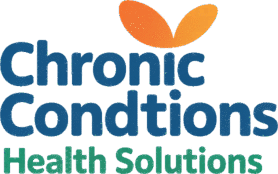Impact of Chronic Illnesses
- • Physical Limitations
- • Emotional Stress
- • Financial Burden

Ever wondered how primary care can transform the management of chronic illnesses? With integrated support and early intervention, it becomes a game-changer in navigating your health journey. Let's explore the vital lessons learned from the role of primary care in chronic illness management.
This visual highlights the profound impact of chronic illnesses across physical, emotional, and financial dimensions, alongside the critical role of primary care in early detection, ongoing management, and addressing health disparities.
Managing chronic illnesses can feel like navigating a maze. It's crucial to have a guide—this is where primary care comes into play! By understanding the intricacies of chronic conditions, we can better appreciate the pivotal role that primary care providers have in our health journeys.
Chronic illnesses, such as diabetes, heart disease, and arthritis, don't just affect physical health; they can impact emotional well-being, social interactions, and overall quality of life. Recognizing these challenges is the first step toward effective management. At Chronic Conditions Health Solutions, I witness firsthand how *early intervention* and proper management can empower individuals to live fulfilling lives despite their conditions! For further reading on this topic, explore insights on early intervention in chronic disease.

Chronic illnesses are long-term health conditions that require ongoing management. These can range from physical conditions like hypertension to mental health challenges, such as anxiety disorders. The impact on health is profound and multifaceted:
By understanding these impacts, we can better advocate for ourselves and others who may be struggling. This advocacy often starts with recognizing the importance of primary care in managing these challenges.
Primary care providers are often the first point of contact for patients experiencing health issues. Their role in early detection is critical, as timely interventions can significantly affect long-term health outcomes. Here’s how they contribute:
In my practice, I've seen how proactive primary care can lead to better management strategies, ultimately enhancing the quality of life for those living with chronic conditions. Discover more about how early detection prevents chronic diseases and contributes to better health outcomes.
Health disparities remain a significant challenge in chronic illness management. These disparities can arise from socioeconomic factors, access to healthcare, and even education levels. Understanding these barriers is crucial for effective management:
At Chronic Conditions Health Solutions, I strive to address these disparities by offering tailored services that empower individuals, ensuring everyone has the opportunity for better health outcomes. Together, by recognizing and tackling these challenges, we can pave the way for improved chronic illness management.
Did you know? Engaging in regular physical activity can significantly enhance your overall well-being when managing chronic conditions. Aim for at least 150 minutes of moderate exercise each week, like brisk walking or swimming, to improve not only your physical health but also your mood and energy levels!
When it comes to managing chronic illnesses, the role of primary care cannot be overstated. Primary care providers are essential in ensuring that patients receive the timely and necessary interventions that can lead to better health outcomes. By focusing on early detection and prevention, primary care can significantly improve the long-term health of individuals facing chronic conditions.
Engaging with your primary care provider allows for consistent monitoring and management of chronic diseases. This proactive approach can lead to reduced hospitalizations and complications over time. The benefits are clear: regular check-ups can help identify potential issues before they escalate, empowering patients to take control of their health.
Early detection is key in chronic disease management. When conditions are caught early, patients have a greater chance of improving their health outcomes. Some benefits of early detection include:
At Chronic Conditions Health Solutions, we emphasize these benefits through personalized care plans tailored to each individual's needs. Recognizing the importance of lifestyle changes and early intervention strategies is vital for anyone navigating chronic health challenges.

Regular engagement with your primary care provider is not just a recommendation; it’s a necessity for effective chronic illness management. Staying connected can help you:
Consider how often you check in with your doctor and the impact it has on your health journey. Are you scheduling regular appointments or only visiting when issues arise? Establishing a routine with your primary care provider can foster a supportive environment where you feel comfortable discussing your concerns. For insights on managing stress, which can significantly impact chronic illness, refer to our article on stress management for chronic illness.
Understanding outcome measures in chronic disease management is essential for both patients and providers. These measures help track progress and determine the effectiveness of treatments. Some common outcome measures include:
By monitoring these measures, we at Chronic Conditions Health Solutions can adjust our strategies to better suit individual needs. This data-driven approach not only enhances patient care but also ensures that we're collectively moving toward better health outcomes.
Now that you understand the importance of primary care in managing chronic conditions, it’s time to take action! Prioritizing your health starts with scheduling your next check-up. But what should you expect during these visits?
When you schedule your next appointment with your primary care provider, here's what you can generally expect:
It’s essential to come prepared with questions or topics you’d like to discuss. This ensures that you get the most out of your visit and allows your provider to tailor their approach to your unique situation.
Knowledge is power! At Chronic Conditions Health Solutions, we provide various resources to help you learn more about managing chronic conditions. Some helpful resources include:
Take advantage of these resources to enhance your understanding and ability to manage your health effectively.
Finally, it’s essential to think about health promotion strategies not just for yourself, but also for your family. Here are some strategies you can implement:
Empowering yourself and your loved ones through education and active participation can lead to a healthier family dynamic. Remember, at Chronic Conditions Health Solutions, we’re here to support you every step of the way!
Here are some common questions regarding the role of primary care in managing chronic illnesses:
Here is a quick recap of the important points discussed in the article:
At Chronic Conditions Health Solutions, we're dedicated to transforming chronic disease management through personalized exercise physiology and evidence-based lifestyle interventions. Dr. Emilia Carter and our team empower you to achieve better health outcomes and a more fulfilling life. Your well-being is our priority.
